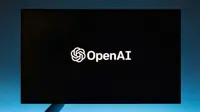Board members resign after management changes at Mozilla
29 Mar 2014
The Wall Street Journal reported, after taking the new job, Eich told CNET in an interview that day, that three board members had resigned. These are John Lilly, a former Mozilla CEO who's now working at venture capital firm Greylock Partners; Ellen Siminoff, CEO of online education company Schmoop; and Mozilla's most recent CEO, Gary Kovacs.
According to Mozilla, which disputed the Journal's account, the board changes happened last week.
"The three board members ended their terms last week for a variety of reasons," the non-profit organisation said in a statement. "Two had been planning to leave for some time, one since January and one explicitly at the end of the CEO search, regardless of the person selected."
A new member, however, joined the board - Spiegel Online CEO Katharina Borchert. With the appointment the board now has three members - chairwoman Mitchell Baker, who co-founded Mozilla with Eich, and Netflix CEO Reid Hoffman.
Meanwhile, Mozilla employees across the web are pressing for the removal of the new CEO who earlier held the position of CTO and had been with the company since its formation out of Netscape in the 90's.
In 2008, Eich donated $1,000 to support Prop 8, a California ballot proposition that aimed to ban gay marriage in California. In 2012, the public listing for the donation was uncovered, with Mozilla appearing against Eich's name, but Eich continued as CTO with the company following the minor scandal.
With the appointment to the top post, Eich has become the focus of employee ire as also members of the LGBT tech community.
Mozilla's head of education Christie Koehler, without making any comment about Eich's suitability as a CEO, expressed her disappointment with his private endorsement of anti-LGBT legislation.
She said that she was disappointed like many people, when she found out that Brendan had donated to the anti-marriage equality Prop 8 campaign in California. She said it was hard for her to think of a scenario where someone could donate to that campaign without feeling that queer folks were less deserving of basic rights.
She said she was frustrated when people used their economic power to further enshrine and institutionalise discrimination.































